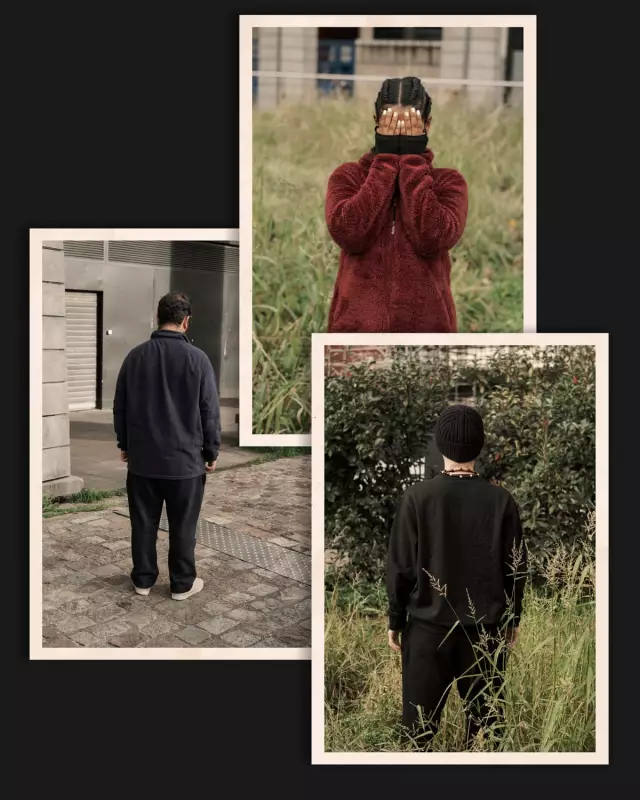
A Cycle of Fear and Removal
The stark reality of the UK's immigration deterrence policies is being lived out by a group of asylum seekers in Paris, their stories a powerful illustration of how theories of border control collide with the desperate logic of human survival. Sent back to France under the controversial 'one in, one out' scheme, they speak of feeling frightened, hopeless, and caught in a terrifying cycle between two nations.
No Safe Haven
Afran, an Iranian asylum seeker whose name has been changed, finds himself back across the road from a Paris shelter, a place he first left seven weeks ago. He became the first person to make headlines for returning to the UK on a small boat after his initial removal on 19 September. The Home Office sent him back to Paris for a second time on 5 November.
'France, UK, France, UK, France – it’s not my choice,' he says, explaining that smugglers in northern France had attacked and threatened his life before his first Channel crossing on 6 August. 'I am frightened every time I go outside the shelter. I am not safe here.'
He sits with three other recent returnees, including the first woman removed under the scheme. Their collective testimony emerges just as the government prepares to announce even more draconian measures aimed at stopping the small boat crossings.
A Controversial and Arbitrary System
The policy has drawn criticism from all sides. Immigration hardliners view it as ineffective, with official figures revealing just 113 returns to France and only 84 asylum seekers allowed to travel in the opposite direction. The scheme's inadequacy was highlighted when 217 people successfully crossed the Channel on a single Friday alone—nearly double the total number of removals.
Meanwhile, human rights campaigners condemn the policy as unduly harsh and arbitrary in its application. The four individuals, thrown together by circumstance, wear donated tracksuits and lack proper winter clothing. Their emotional state fluctuates between hysterical laughter and tears over the hopelessness of their predicament.
'I know the security now in the detention centre I’ve been locked up in twice,' Afran says, pushing fish fingers around his plate. 'I told them I’ll be back for Christmas.'
An Eritrean man, the second person to be returned to the UK after forcible removal, currently awaits his fate in a UK detention centre. He returned because he felt unsafe in France, after being locked out of his shelter late one night and subsequently attacked by two men on the street on 23 October.
'I was in shock after the attack,' he says. 'If the security at the Paris shelter had allowed me back inside... I would not have been attacked and I would still be in France now. Because of the bad experience I had I no longer believe France can protect me.'
Documents reveal that a detention centre doctor had previously judged his account of being trafficked and tortured in Libya as 'consistent with torture'.
A System Failing the Vulnerable
Lochlinn Parker, the acting director of the charity Detention Action, states: 'In their rush to remove those seeking asylum to France, the Home Office is depriving them of the chance to explain their circumstances and is causing extreme distress. The result is that some of the most vulnerable, including survivors of trafficking, are being detained for long periods in prison-like conditions.'
A survey conducted by the charity Medical Justice of 33 people detained under the scheme found that of the 20 who had undergone expert medical reports, 17 were torture survivors and 14 were trafficking survivors, with 15 suffering from post-traumatic stress disorder.
The three male asylum seekers express protective concern for the woman in their group. 'Why did they send a woman back to France? This is really bad,' Afran says.
The woman, an Eritrean who fled persecution for her Christian faith, says: 'The country I thought would be a haven for me was the first one to lock me up. They took my strength away. I am not asking for a passport from the UK, I just want to be safe and to be with my family.'
All share the crippling experience of detention. A Syrian man describes witnessing 'four people attempting suicide' and notes, 'We were released from the hands of the smugglers into a prison in the UK.' Another man from a former Soviet republic describes the policy as a 'political football', adding, 'We know we are being used as the ball.'
For Afran, the immediate future holds another move to temporary accommodation elsewhere in France. Sitting with his head in his hands, he concludes: 'For all of us there is no safe place to go... The Home Office is no good for humans. They have broken me. They have finished my life.'





